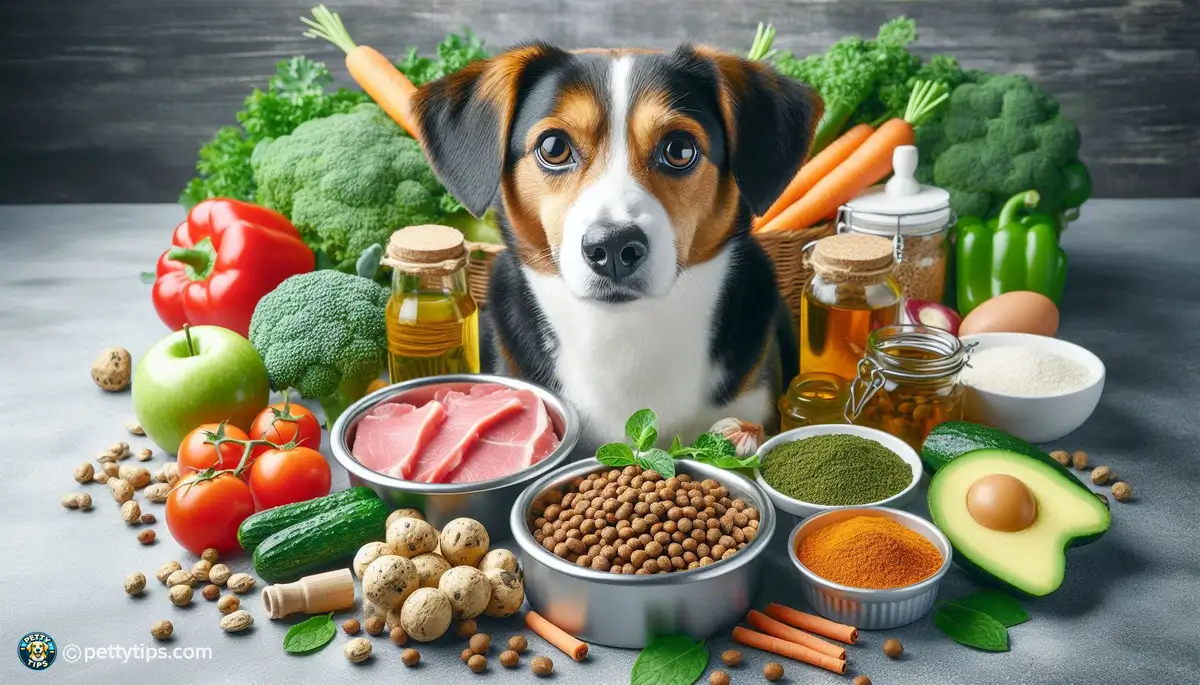- Home
- Pet Nutrition
- Homemade Diets for Pets with Weight Management Needs
Homemade Diets for Pets with Weight Management Needs

The Importance of Maintaining a Healthy Weight
Maintaining a healthy weight is vital for your pet's overall well-being. Just like humans, carrying excess weight can lead to a myriad of health issues for our furry companions. Obesity in pets can increase the risk of diabetes, joint problems, heart disease, and even certain types of cancer. As responsible pet owners, it's our duty to ensure our pets stay at a healthy weight to lead long, happy lives.
Recognizing Signs of Weight Issues
As pet owners, it's essential to recognize the signs that our pets may be struggling with their weight. Some common signs include difficulty breathing, lethargy, reluctance to exercise, and even difficulty grooming themselves. If you notice any of these signs in your pet, it's crucial to consult with your veterinarian to develop a plan for weight management.
Consulting with Your Veterinarian
Before making any significant changes to your pet's diet, it's essential to consult with your veterinarian. They can provide valuable insight into your pet's specific needs and any underlying health conditions that may impact their weight management journey. Your vet can also help you determine a healthy target weight for your pet and create a customized plan to help them achieve it.
The Role of Homemade Diets
homemade diets can be an excellent option for pets with weight management needs, as they allow for precise control over ingredients and portion sizes. By preparing your pet's meals at home, you can ensure they're getting the nutrients they need without excess calories. However, it's essential to work closely with your veterinarian or a veterinary nutritionist to develop a balanced homemade diet that meets your pet's nutritional requirements.
Designing a Balanced Homemade Diet
Choosing the Right Ingredients
When designing a homemade diet for your pet, it's crucial to select high-quality ingredients that provide the nutrients they need to thrive. Lean proteins, such as chicken, turkey, or fish, should form the foundation of your pet's diet, as they help maintain muscle mass while keeping calories in check. Additionally, include plenty of fresh fruits and vegetables to provide essential vitamins, minerals, and fiber.
Paying Attention to Portion Control
portion control is key when it comes to managing your pet's weight. It's easy to inadvertently overfeed our furry friends, especially when feeding homemade meals. To prevent overeating, measure out precise portion sizes based on your pet's weight and activity level. Dividing their daily food allowance into multiple small meals throughout the day can also help prevent hunger and regulate their metabolism.
Incorporating Supplements
Even with careful planning, homemade diets may still lack certain essential nutrients. To ensure your pet gets everything they need, consider incorporating supplements into their meals. omega-3 fatty acids, for example, can help support joint health and reduce inflammation, while probiotics can promote a healthy digestive system. However, it's essential to consult with your veterinarian before adding any supplements to your pet's diet to ensure they're safe and appropriate.
Monitoring Your Pet's Progress
Once you've implemented a homemade diet for your pet, it's essential to monitor their progress closely. Keep track of their weight, body condition score, and overall energy levels to gauge the effectiveness of the diet. If you notice any changes or concerns, don't hesitate to reach out to your veterinarian for guidance. Adjustments to the diet may be necessary to ensure your pet continues to make healthy progress.
Implementing Lifestyle Changes
Increasing Physical Activity
In addition to diet changes, increasing your pet's physical activity is essential for weight management. regular exercise helps burn calories, build muscle, and improve overall fitness. Take your dog for daily walks, engage in interactive play sessions with your cat, or consider enrolling them in agility classes or swimming sessions. Finding activities that your pet enjoys can make exercise more enjoyable for both of you.
Enriching Their Environment
Enriching your pet's environment can also help prevent boredom and reduce the likelihood of overeating. Provide plenty of interactive toys, puzzle feeders, and opportunities for mental stimulation to keep your pet engaged and entertained. Additionally, consider incorporating food puzzles or slow feeders into mealtime to encourage your pet to eat more slowly and mindfully.
Establishing a Routine
Consistency is key when it comes to managing your pet's weight. Establish a regular feeding schedule and stick to it, avoiding free-feeding or excessive treats throughout the day. Creating a structured routine can help regulate your pet's metabolism and prevent overeating. Be patient and persistent, and remember that small changes over time can lead to significant improvements in your pet's health and well-being.
Seeking Support
Weight management can be challenging, but you don't have to go it alone. Seek support from your veterinarian, friends, or online communities who can offer encouragement, advice, and accountability along the way. Share your successes and challenges, celebrate milestones, and lean on others for support when you need it. Together, you can help your pet achieve and maintain a healthy weight for life.
